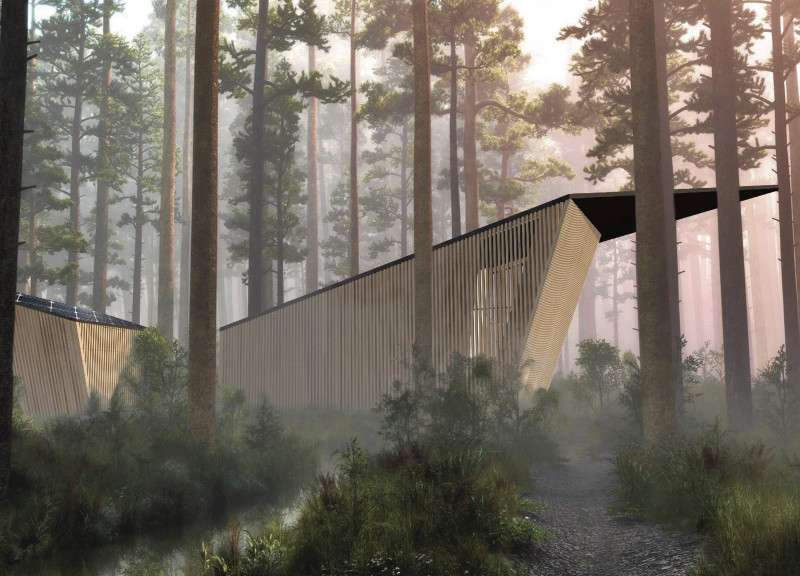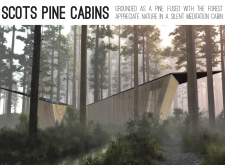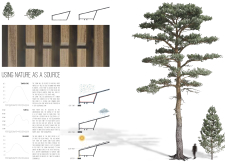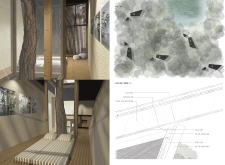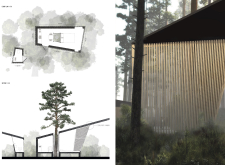5 key facts about this project
Functionally, the cabins serve as retreats for individuals seeking solace and connection with nature. Each cabin is thoughtfully laid out to provide both communal areas for shared experiences and private spaces for personal reflection. This balance is key to the project’s intent, as it encourages relaxation and interaction in equal measure. The architectural design enhances user experience through careful spatial organization, ensuring that occupants can enjoy both isolation and companionship as desired.
A significant aspect of the project is its materiality. The design primarily utilizes natural wood fibers, particularly sustainably sourced pine wood, which serves as the structural framework and cladding. This choice not only aligns with the project’s environmental ethos but also contributes to the aesthetic warmth of the cabins. Alongside wood, materials such as waterproof EPDM are employed for roofing, and double-glazed glass is used for windows, optimizing energy efficiency while allowing light to permeate the interiors. This focus on sustainable practices is integrated with features like solar panels, which harness renewable energy, reinforcing the commitment to ecological responsibility.
In discussing unique design approaches, the Scots Pine Cabins employ a distinctive roof design that captures rainwater and solar energy efficiently, highlighting the project's innovative approach to sustainability. The integration of passive solar heating and natural ventilation strategies reflects a sensitivity to the climate and an understanding of how architectural design can respond to environmental conditions. These elements work in harmony to create comfortable environments throughout seasonal changes.
The layout of the cabins is another noteworthy feature of the project. Open communal spaces are designed to foster social interaction, while strategically placed private areas offer solitude. The use of natural light and views of the surrounding forest enhance the overall ambiance, allowing users to feel a continuous connection with nature. The preservation of existing trees within the site underscores a respect for the natural environment, ensuring that the cabins blend harmoniously with their surroundings.
The Scots Pine Cabins project stands out as a well-considered architectural endeavor that respects its setting and promotes sustainability. By focusing on materiality and thoughtful design, the project not only addresses the functional needs of its occupants but also captures the beauty and tranquility of the landscape. Visitors are encouraged to explore the project further and consider its architectural plans, sections, designs, and ideas for a comprehensive understanding of how architecture can positively impact both user experience and environmental consciousness. This project serves as a valuable case study in contemporary architecture, reflecting an ongoing dialogue between built forms and the natural world.


